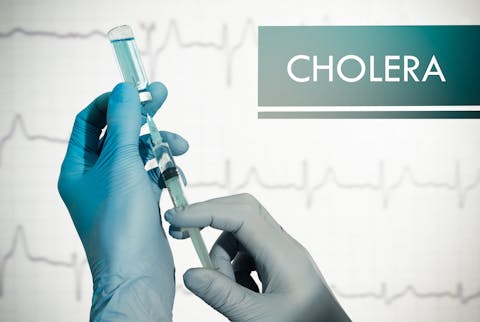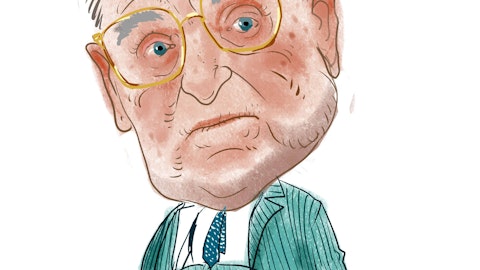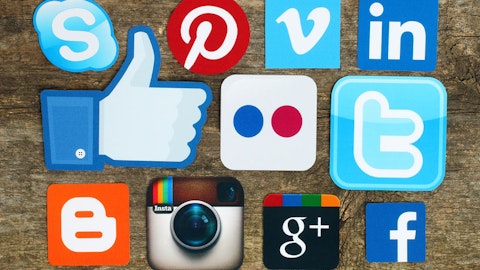In this article, we are going to list the 15 largest vaccine companies in the world. Click to skip ahead and jump to the 5 largest vaccine companies in the world. Vaccination is the most simple and effective way of prevention of many diseases. It provides immunity to infectious diseases and it is the most cost-effective method to protect the world population. The first-ever vaccine was introduced for smallpox to treat the deadly cowpox virus in 1796. This virus killed many people and developing a vaccine for it saved many lives. But the concept of vaccines existed even before 1796. Pharmaceutical companies around the globe have worked to develop vaccines for diseases such as Malaria, HIV, cholera, influenza and tuberculosis.
Vaccination has made a tremendous commitment to worldwide wellbeing. Two significant diseases, smallpox, and rinderpest have been eradicated. Worldwide inclusion of vaccination against numerous significant infectious viruses of adolescence has improved drastically since the production of WHO’s Expanded Program of Immunization in 1974 and of the Global Alliance for Vaccination and Immunization in 2000. Polio has nearly disappeared and achievement in controlling measles marks another significant benefit received from it. Regardless of these victories, around 6.6 million kids actually bite the dust every year and about a half of these deaths are brought about by diseases, including pneumonia and Rotavirus that causes severe diarrhea, which could be forestalled by vaccination.

Green Apple/Shutterstock.com
The revenue from the global vaccine market was around $33 billion in 2019 and analysts expect growth of around 5-7% in the coming years in the revenues. The major companies enjoying 90% of these revenues are Glaxo Smith Kline, Pfizer, Sanofi, and Merck & Co. Vaccines companies are present in 50 countries around the world, but a large part of vaccine companies are fundamentally U.S. – or European-based having the predominant portion on a revenue basis. But other companies are progressively developing their piece of the pie of this high growth market. And India, while not having the biggest vaccine companies in the world, is still responsible for the production of 60% of the global vaccines.
There are very few vaccine-making companies that fulfill worldwide guidelines of quality set up by WHO. The limited number of these companies and limitation in production capacity creates a disbalance in the market as there are more demand and limited supply. Over the most recent 10 years, the vaccine business in the United States and Europe has extensively improved its supply. Constant deficiencies are a relic of past times; this change has principally been accomplished by the modernization of the vaccine production process. The distribution methods have also been improved and the unavailability of vaccines issue has improved. This is due to the high profitability and reinvestment by these companies to solve these issues.
Due to technological advancement companies can further improve the supply and expand this industry. The significant vaccine players could obtain or receive these innovations. These industry pioneers are, obviously, utilizing their money power to put resources into these developments. GSK’s adjuvants and Merck’s nonreplicating viral vectors are two models that give promising alternatives to future immunization advancement. One especially alluring component of a portion of the new advancements is that they can fundamentally reduce the time frame needed to develop vaccines.
The late occurrence of the Covid-19 virus has influenced a vast number of individuals across the globe. Presently, biopharmaceutical and biotechnological organizations are zeroing in on expanding research and development of vaccines for COVID-19. The pandemic has offered exceptional demand and firms are broadly putting resources into R&D exercises alongside subsidizing from public authorities. This has led to the vaccine market having huge demand and development.
Medication creators around the globe are dashing to build up the main powerful COVID-19 antibody. Early endeavors show promise and a foreseen hop in the novel coronavirus cases in the fall implies that the sooner a vaccine is successfully created, the more lives can be saved-and the drug business assumes a significant part in this revelation. The improvement of an antibody to balance the novel coronavirus causing COVID-19 is as yet in primer stages, yet as of now, there’s the expectation.
Fortunately, we’re seeing an extraordinary speeding up of medicines and antibodies precisely when we most need it. By and large, antibody advancement takes a normal of five years, yet current endeavors could deliver a chronicled first compacting this chance to a year and a half. Multiple vaccines have already been approved by public authorities across the world and millions of doses have already been administered, though a lot more still remains to be done. Hopefully, the administration of vaccines will lead to the end of the worst pandemic in a century, and lives will be able to return to normal. Even if that happens, we are still in for several dark month so taking all precautions is absolutely necessary. So let’s take a look at the largest vaccine companies that have joined the race for producing a vaccine and are on trial 2 or above of COVID vaccine, including some of the biggest biotech companies in the world, starting with number 15:
15. Cadila Health Care
Total market cap ( in billions of dollars ): 6.7
Total revenue of the company (in millions of INR): 12,92,89.000
Total assets of the company in 2019 (in millions of INR): 8,49,81.000
Number of employees: 13,405
Cadila Healthcare Limited (otherwise called Zydus Cadila) is an Indian worldwide drug organization settled in Ahmedabad, Gujarat, India. It fundamentally produces generic drugs and medications.

Pixabay/Public Domain





